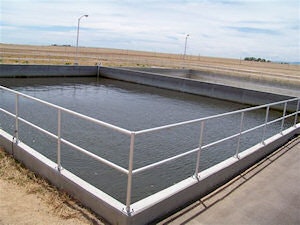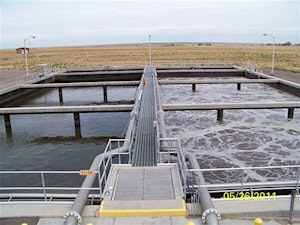How to Avoid Wastewater Pipe Blockages

FOG = Fats, Oils and Grease
The Fats, Oils and Grease (FOG) Control Program is designed to help reduce wastewater (sewer) pipe blockages and related overflows from the improper disposal of fats, oils and grease from sources such as cooking oils, salad dressings, meat fats, dairy products, butter and margarine, to name a few. With everyone’s support we can reduce blockages in the community’s wastewater system, which help us keep everyone’s wastewater costs down.
By following these six simple rules, you too can help prevent clogs and sewage overflows:
- Never pour any fats, oils, or grease down the sink or garbage disposal.
- Before washing, scrape and dry wipe pots, pans and dishes with paper towels and dispose of materials in the trash.
- Pour fats, oils and grease after it has cooled into a sealable container and place it in the trash.
- Use sink strainers that will catch food scraps and empty them into the trash. Home garbage disposals do not keep grease out of the plumbing system.
- Don’t put diapers or sanitary napkins down the drain.
- Plant trees away from your wastewater pipes because eventually their roots will grow into the pipe and cause a blockage.

Don't Flush Those Wipes!
No matter what the label says, wipes and paper towels do not break down like toilet paper does in water. They are stronger, and many wipes include plastics and materials like nylon. That means bad news for sewer systems.
Flushing wipes, paper towels and similar products down toilets will clog sewers and cause backups and overflows at wastewater treatment facilities. Even wipes labeled “flushable” will clog pipes and interfere with sewage collection and treatment. They should be thrown away in the trash after use.
If you decide to flush them, the pipe you block may be your own. You can block your own sewer lateral to the street. Then your toilet won’t flush. Your shower won’t drain. As a homeowner, you're responsible for maintaining the plumbing in your home and the sewer lateral from the home to the sewer main under the street.
